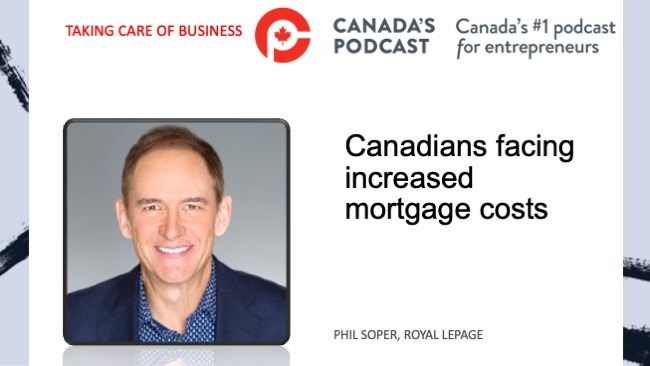Although the vast majority (78 per cent) of small- and medium-sized businesses (SMBs) have established policies or initiatives to reduce their emissions footprint, seven in 10 find they lack the time and resources to make it a priority, finds KPMG’s 2023 Private Enterprise™ Business Survey. Similarly, less than a third feel very confident in their plans to reduce emissions across their value chain.
When asked to identify the greatest barriers to achieving their net-zero goals, SMBs cited a shortage of skills and expertise to implement solutions, the complexity of decarbonizing their supply chains, and a lack of appropriate technology. Adding to these challenges is a critical shortage of quality data, with over two-thirds expressing concern about their ability to effectively measure, implement and evaluate their carbon footprint, added the report.

Andrew McHardy
“Climate change demands that companies, regardless of size, take immediate action to start reducing their carbon footprint,” said Andrew McHardy, National Decarbonization Hub Leader at KPMG in Canada. “While companies are setting targets aligned to Canada’s 2050 net-zero goals, our research shows many SMBs are struggling to action their plans as they grapple with increasingly complex decarbonization challenges.”
Key results from the survey include:
- 78 per cent of SMBs in Canada have established policies or initiatives to reduce greenhouse gas (GHG) emissions;
- 70 per cent lack the time and resources to make reducing their carbon footprint a top or immediate priority;
- 68 per cent say they lack the data they need to effectively measure, implement, and evaluate their carbon footprint;
- 79 per centare willing to increase their investments in line with their climate-related goals;
- Key barriers to achieving net zero: lack of skills and expertise to implement solutions, supply chain complexity, and technology;
- Only 29 per cent say that their buyers (or customers) are helping them to decarbonize with bigger and longer-term contracts and/or preferential status (for example, via procurement policies to incentivize decarbonization investments);
- 29 per cent have started to replace their fleet (e.g., trucks, buses, vans) with low GHG emission vehicles;
- Fewer than a third feel “very confident” in their emissions reduction plan:29 per cent (Scope 1 – emissions from sources/assets owned or controlled by your company); 27 per cent (Scope 2 – indirect emissions created by the production of energy your company buys); 28 per cent (Scope 3 – the rest of your upstream and downstream supply chain outside of Scope 2)
Meanwhile, ccording to KPMG International’s 2023 CEO Outlook survey, which captures the views of the world’s biggest corporations, Canadian CEOs believe decarbonizing their supply chain – which often includes smaller to mid-sized companies – and gaps in technology to be the greatest barriers to achieving net zero.
Canadian CEOs are also much more focused on addressing environmental challenges, including the net-zero transition, and are prioritizing those investments as part of their broader environmental, social and governance (ESG) goals. Nearly eight in 10 Canadian SMBs are willing to increase their investments in line with their climate-related goals, said the report.
“Canadian business leaders are feeling the pressure on all fronts to progress their decarbonization plans, but the level of business transformation needed to address the entire scope of their emissions footprint can be significant,” said McHardy. “Investment in time and resources is key to moving the dial on these big decarbonization challenges in the long run, and collaboration between government, corporates and capital providers will also play an important role in building scalable solutions to accelerate the transition to a lower carbon economy.”

Mario Toneguzzi
Mario Toneguzzi is Managing Editor of Canada’s Podcast. He has more than 40 years of experience as a daily newspaper writer, columnist, and editor. He was named in 2021 as one of the Top 10 Business Journalists in the World by PR News – the only Canadian to make the list)
About Us
Canada’s Podcast is the number one podcast in Canada for entrepreneurs and business owners. Established in 2016, the podcast network has interviewed over 600 Canadian entrepreneurs from coast-to-coast.
With hosts in each province, entrepreneurs have a local and national format to tell their stories, talk about their journey and provide inspiration for anyone starting their entrepreneurial journey and well- established founders.
The commitment to a grass roots approach has built a loyal audience on all our social channels and YouTube – 500,000+ lifetime YouTube views, 200,000 + audio downloads, 35,000 + average monthly social impressions, 10,000 + engaged social followers and 35,000 newsletter subscribers. Canada’s Podcast is proud to provide a local, national and international presence for Canadian entrepreneurs to build their brand and tell their story.





